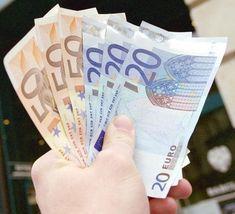
The European Central Bank (ECB) has raised interest rates for the eurozone to their highest level for six years.
The rise from 3.75 to four per cent, after a series of inflationary warnings from ECB members in recent weeks, means rates have now doubled in 18 months.
The deposit rate is now three per cent and the marginal lending rate is five per cent.
The precise wording of a statement read out by ECB president Jean-Claude Trichet at his news conference is seen as crucial.
Last month he said that "strong vigilance" was needed to keep inflation under control, which was taken as a signal that rates would go up this month.
"First of all, we need guidance on whether the ECB still regards its monetary policy as accommodative," said Holger Schmieding, European economist at Bank of America.
If the word "accomodative" is not used then it will be taken as a sign that interest rates are approaching a peak.
The eurozone economies, especially Germany, have been growing strongly in 2007.
Unemployment is at its lowest level since the launch of the euro while confidence is high and business activity is expanding.
But Trichet is not expected to signal another rise straight away, with clouds on the horizon such as problems in the US housing market and uncertainty about Chinese stock markets.